Chronicles of Us, Part 1: Beaten and Detained at 14
He’s epileptic. He was doing nothing. And the police took him because people were protesting somewhere else in Puerto Ordaz. With this photo essay, we start a series of stories of human rights violations documented by La Vida de Nos, a wonderful Venezuelan project of storytelling focused on testimonials.


Photos: William Urdaneta
At 14 years of age, Jickson was arrested and beaten by members of the Venezuelan National Guard when he was running away from repression against a civilian demonstration, on the night of January 23rd, in the city of Puerto Ordaz, south of the country. He’s epileptic and wasn’t allowed to the daily medicine he needs to lead a “normal” life. He’s one of the 137 teenagers that, according to the NGO Foro Penal Venezolano, were arrested for protesting at various parts of the country between January 21 and 31, 2019.
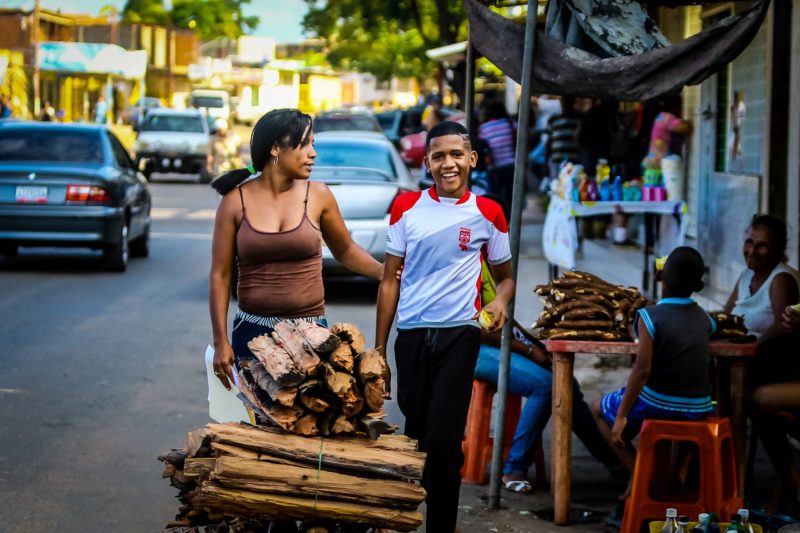 Jickson is the youngest of four siblings. He lives with his family at Villa Bahía, a very popular, deprived neighborhood in Puerto Ordaz, built as an invasion years ago. He’s 14-years-old and suffers from epilepsy since five, as a result of cranioencephalic traumatism when he was an infant.
Jickson is the youngest of four siblings. He lives with his family at Villa Bahía, a very popular, deprived neighborhood in Puerto Ordaz, built as an invasion years ago. He’s 14-years-old and suffers from epilepsy since five, as a result of cranioencephalic traumatism when he was an infant.
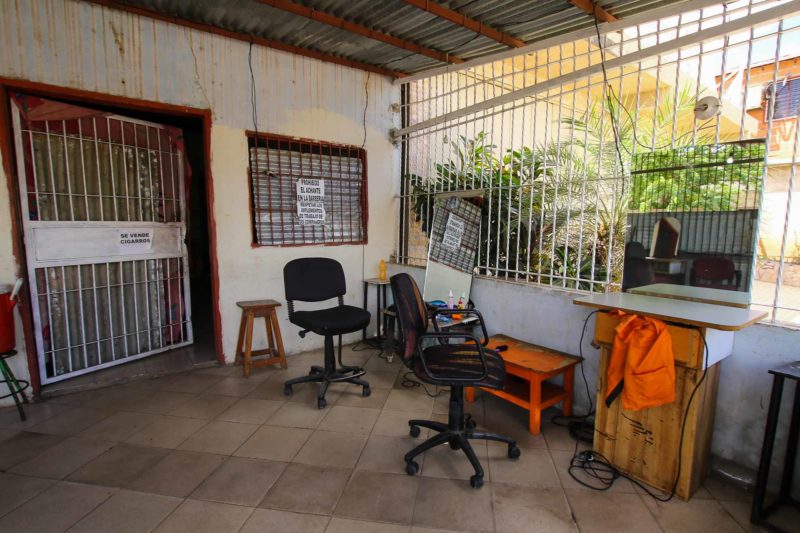 Romelis, his mother, sells loosies and works as a hairdresser at his house, located just at the entrance of a famous area of the neighborhood, known as “Chicharronera.”
Romelis, his mother, sells loosies and works as a hairdresser at his house, located just at the entrance of a famous area of the neighborhood, known as “Chicharronera.”
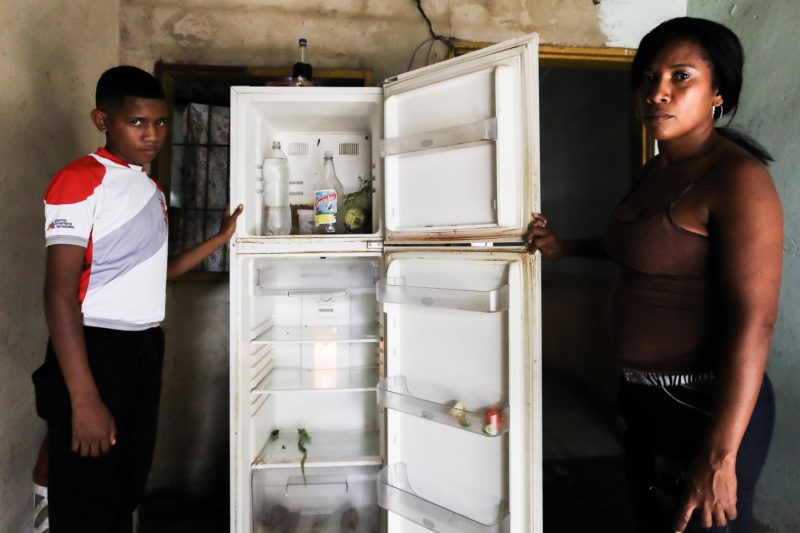 The combined income of Romelis and his husband (who, besides being a barber, works in one of the State-owned Basic Industries,) is not enough to support the family of six, including four children. Often their fridge and pantry are empty.
The combined income of Romelis and his husband (who, besides being a barber, works in one of the State-owned Basic Industries,) is not enough to support the family of six, including four children. Often their fridge and pantry are empty.
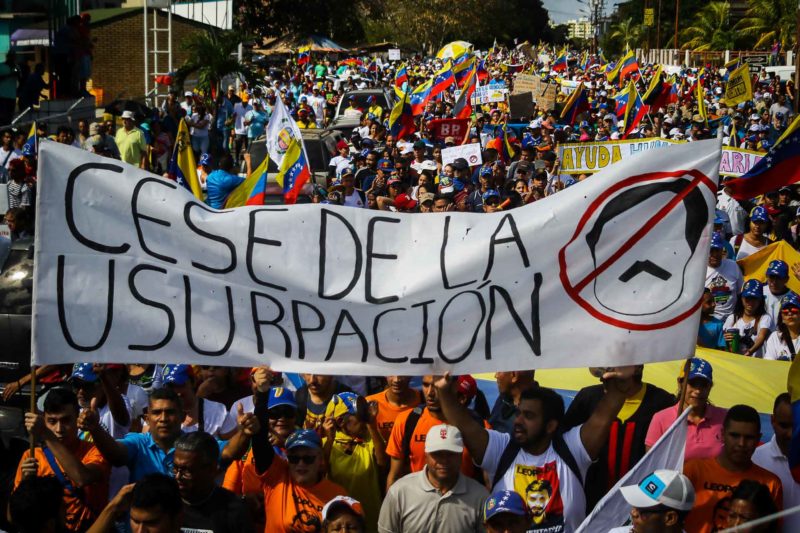 On January, 2019, as it happened throughout the country, the citizens of Puerto Ordaz took to the streets in support of the National Assembly’s Speaker, Juan Guaidó, sworn in as caretaker President of the Republic. While that was happening, Jickson, his family and neighbors had a protest of their own.
On January, 2019, as it happened throughout the country, the citizens of Puerto Ordaz took to the streets in support of the National Assembly’s Speaker, Juan Guaidó, sworn in as caretaker President of the Republic. While that was happening, Jickson, his family and neighbors had a protest of their own.
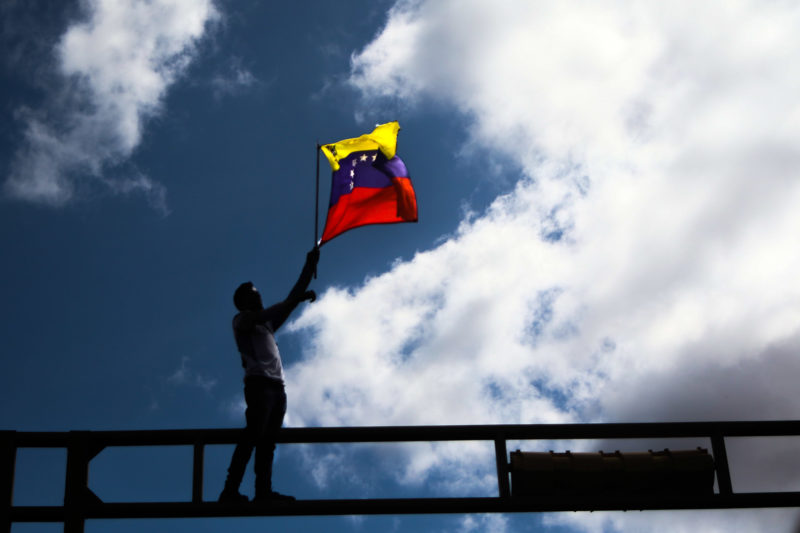 At 8:40 p.m., Jickson was arrested and assaulted by officers of the Bolivarian National Guard in charge of the command at SIDOR (the public company in charge of exploiting and producing iron and aluminum products.) With him, they detained six more people.
At 8:40 p.m., Jickson was arrested and assaulted by officers of the Bolivarian National Guard in charge of the command at SIDOR (the public company in charge of exploiting and producing iron and aluminum products.) With him, they detained six more people.
“Why do you hit us if we’re already arrested?” he asked the soldiers.
“Shut up!”
Jickson received more slaps, especially from female guards.
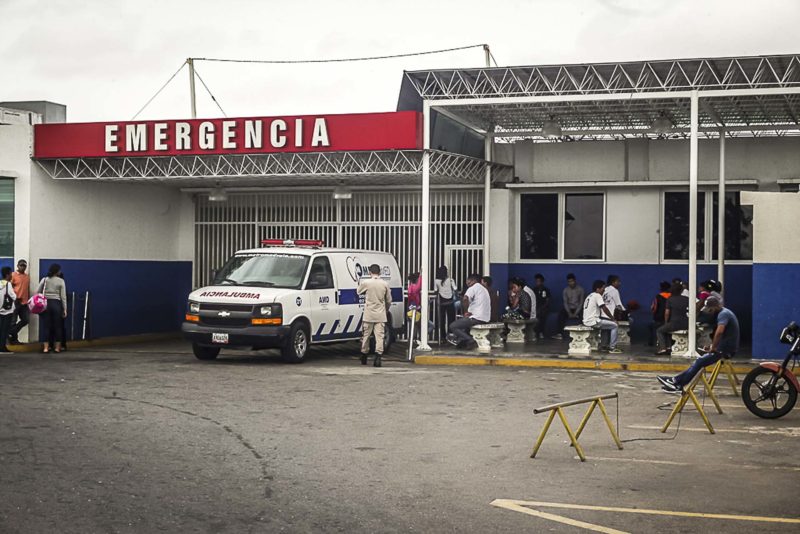 Jickson must take an anticonvulsant daily, but while he was jailed, the military didn’t allow it. Only on Sunday 27th, when he was transferred to court, his mother could see him. She found him handcuffed. The visit was 10 minutes long, a short time that she used to give him his medicine, and to hear everything about the abuses he endured. At night, the National Guard called her to let her know that Jickson had been transferred to the Uyapar hospital in Puerto Ordaz. He had convulsed twice.
Jickson must take an anticonvulsant daily, but while he was jailed, the military didn’t allow it. Only on Sunday 27th, when he was transferred to court, his mother could see him. She found him handcuffed. The visit was 10 minutes long, a short time that she used to give him his medicine, and to hear everything about the abuses he endured. At night, the National Guard called her to let her know that Jickson had been transferred to the Uyapar hospital in Puerto Ordaz. He had convulsed twice.
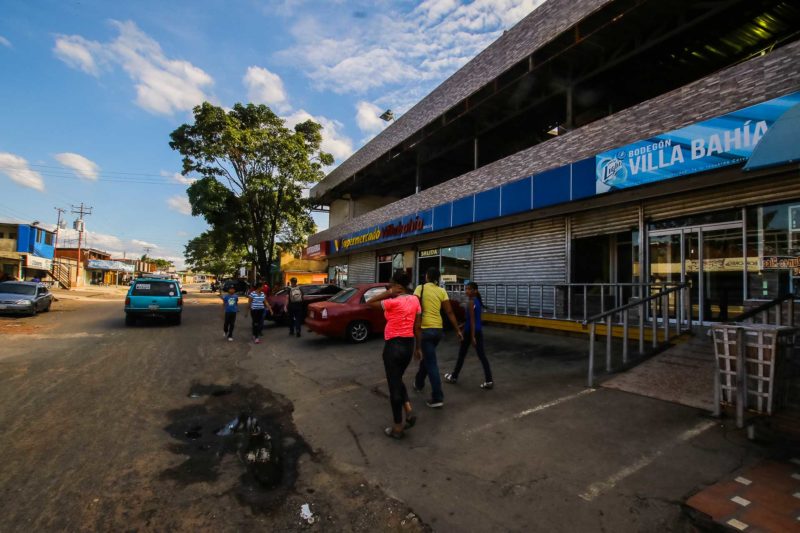 What were the charges against Jickson and the other detainees in Villa Bahía? Looting a vegetable fair in the Core 8 sector, about seven kilometers away from where they arrested him. In Villa Bahía, no store was looted. The Association of Merchants of Villa del Sur testified so.
What were the charges against Jickson and the other detainees in Villa Bahía? Looting a vegetable fair in the Core 8 sector, about seven kilometers away from where they arrested him. In Villa Bahía, no store was looted. The Association of Merchants of Villa del Sur testified so.
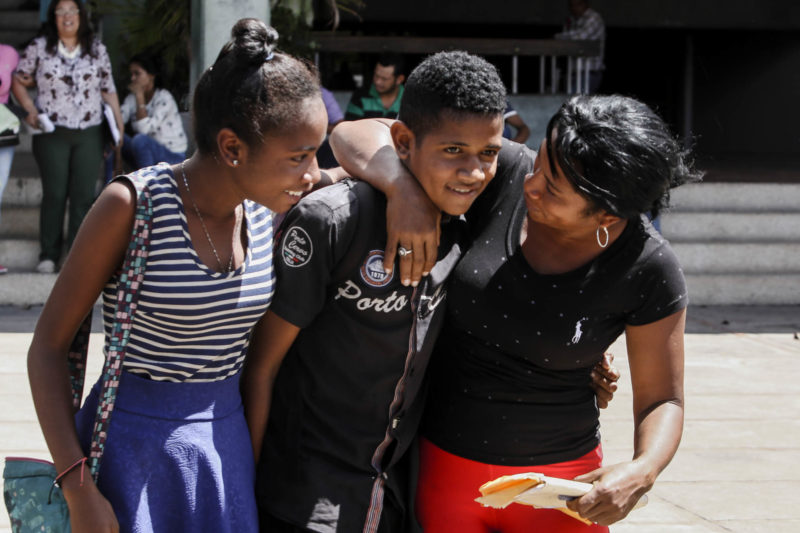 On January 29th, at noon, Jickson was released, with legal limitations: he had to show up at court every 30 days and his mother–as his legal caretaker–had to present three people to serve as bail bondsmen, whose monthly income amounts to at least three minimum wages. They charged him, as well as the other detainees, with looting, resistance to authority and obstruction of public roads.
On January 29th, at noon, Jickson was released, with legal limitations: he had to show up at court every 30 days and his mother–as his legal caretaker–had to present three people to serve as bail bondsmen, whose monthly income amounts to at least three minimum wages. They charged him, as well as the other detainees, with looting, resistance to authority and obstruction of public roads.
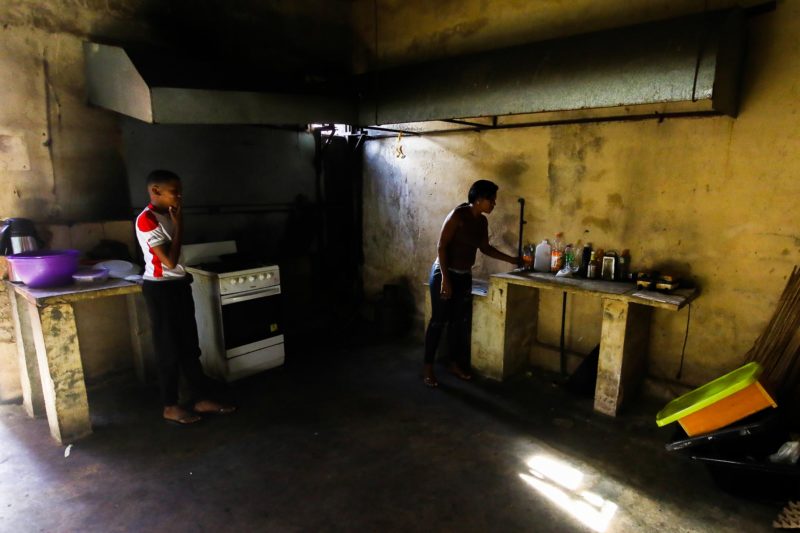 When released, Jickson said that every time he asked permission to go to the bathroom, the National Guards used a wooden board to beat him on the soles of his feet, and that other times he was kicked or slapped in response. Romelis never got tired of begging, until she brought him home again with her, six days after that night when the pots rang loudly in Villa Bahía.
When released, Jickson said that every time he asked permission to go to the bathroom, the National Guards used a wooden board to beat him on the soles of his feet, and that other times he was kicked or slapped in response. Romelis never got tired of begging, until she brought him home again with her, six days after that night when the pots rang loudly in Villa Bahía.
…
This story, written by Jhoalys Siverio and originally published on La Vida de Nos, is part of the project La Vida de Nos Itinerante, where people from all over the country take part in workshops to improve their skills to tell real stories. Pictures by William Urdaneta. Translation: Juan Carlos Liendo / First Edition: Luke Robert Blake, secondary edition: Caracas Chronicles Team
Caracas Chronicles is 100% reader-supported.
We’ve been able to hang on for 22 years in one of the craziest media landscapes in the world. We’ve seen different media outlets in Venezuela (and abroad) closing shop, something we’re looking to avoid at all costs. Your collaboration goes a long way in helping us weather the storm.
Donate




